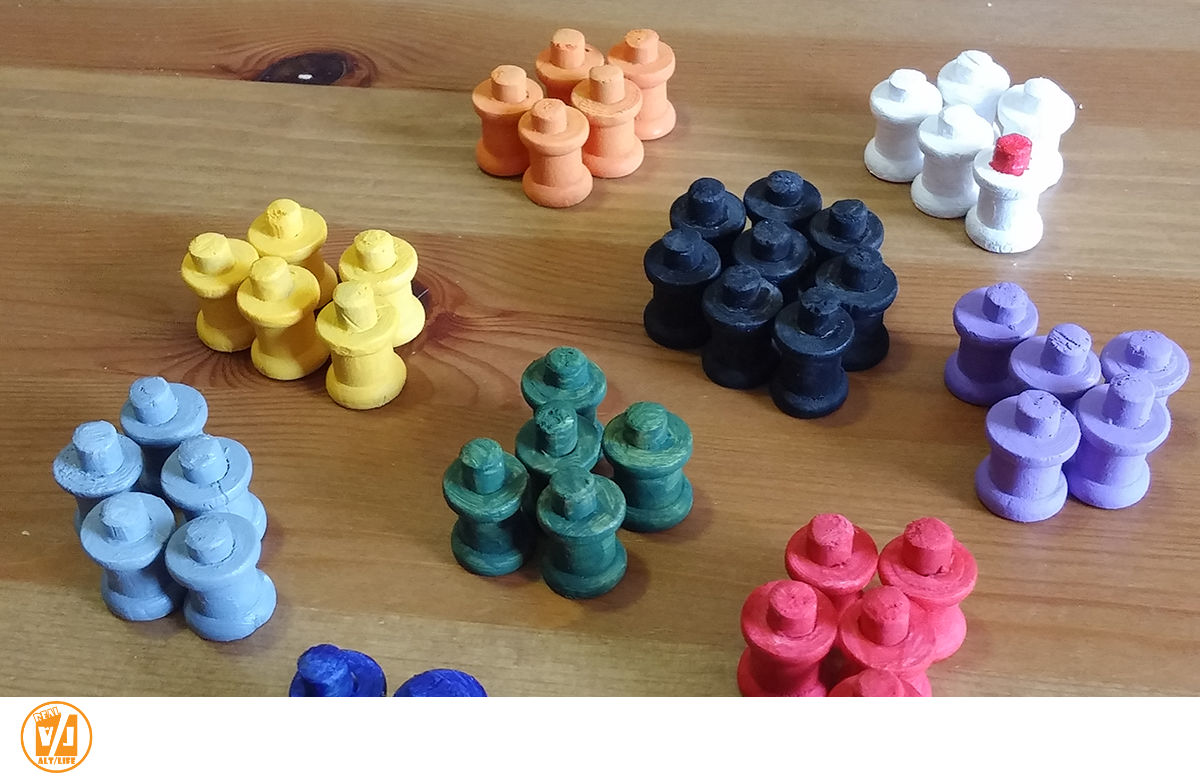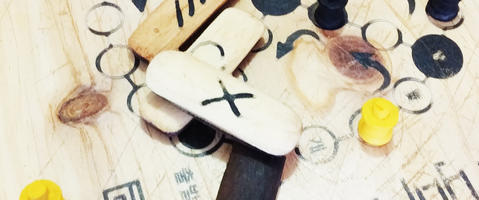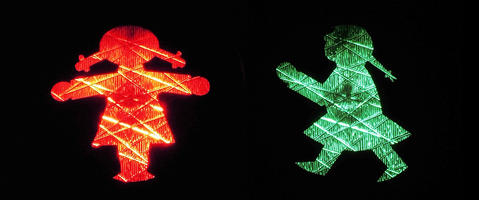In our ongoing drive to avoid the entropy of our lives, boredom and sameness, we seek to make ourselves unique, individual. In our style of clothing, in our taste of music, our opinions, thoughts, expressions... we seek the different, yet at the same time, yearn to be not so different as to be alone in our society. The lone wolf that travels in the pack. It's a fine line... conformity breeds sameness, which breeds boredom. Individualism breeds loneliness, which breeds boredom. Working the dynamics of that fine line is what we attempt to do. Being 'original' is one of the tools, one that such things as entertainment and creativity are dependent upon.
It's been repeatedly noted that once someone has thought of something, another person has had the same thought. Does that mean that with some 6 billion people in the world, at any one time there can only ever be a maximum of 3 billion thoughts going on? At any rate, once something is thought of, it seems that it is echoed elsewhere. Or, more commonly, we discover that our once original thought has already been thought of before. You don’t even need to have anything in common with the creator of the original thought. "A good idea is still a good idea no matter who thinks of it" so to speak. Makes you wonder if we are 'individual' at all; that with common developments happening at various places and time, how can we be unique at all?
At a passing glance, it could very well suggest that we are all part of some collective consciousness... or unconsciousness. Are we all linked somehow? Sharing our thoughts at some level that promotes the same response in different people? This idea suggests that there is something more than "us"... it suggests that there is some common link we have, or maybe a 'higher' intelligence that we are all somehow linked to. It questions if we are individual. Our thoughts etc maybe nothing but the musing of this 'higher' intelligence, and we are nothing more than the expression of those thoughts. It would be like the colour of the same model of car... on the outside it looks different, and in driving it may behave slightly different to other cars, but in the end, it's still the same model as everyone else.
Could it be genetic? If we were to go down this route, it opens up a whole new can of worms... everything we know, who we thought we were, our dreams, our behaviour, the very notion of what it means to be human would be nothing but a pre-programmed outcome of a DNA sequence, and that the only originality that can come about is via changes in the DNA structure. Since we share so much genetic material, not just within species but with other creatures, again we are faced with the problem of 'sameness', but a scale that encapsulates the entire life on this planet.
Of course, it could all be just coincidental. Knowledge, it seems, is finite. There is only so much to learn, and once learnt, once expressed, only changes on the theme can occur. It's said that there are only 7 stories in the world, and all other stories are just a different telling of these seven. Maybe it's true for everything else. With more and more people in the world thinking, creating, maybe we have nearly covered all the truly unique ideas, everything now is just a different spin on the same idea.
Seems like a bleak existence, but it does however provide some comfort on the way. There is an opportunity to appear different, but still retain a common origin, a shared reference, so as not to be so totally unique and different that we are rejected. After all, for all humanity's hunt for individualism, we tend to hate and fear that which is truly different to us. Having things in common, even if it’s the idea that we all share in the same pool of ideas, can help buffer most of us from another driving force; the fear of change.
And this is a paradox of the human condition; we strive to be different, but fear change.
The ones that take the fear and hatred of the unknown, or different, to the extreme - often expressed in violent ways - are often the ignorant, the uncreative, the ones that don't strive to be different. They are the ones that burn the books, shut down the places of learning, promote only that which supports their own fixed ideal.
By not being a part of the hunt for original ideas, not being involved in the thinking process, the creative, the knowledge, they seem to shut themselves out from the 'common themes' that tend to arise when people of different backgrounds and expression get involved. By denying the new or different, they shut themselves off from that which allows us to stay together, that which allows us to remain in part, the same. With the ideals that only the same can be trusted, that all else is to be rejected, theirs seem to be the way of absolute entropy. And in the humanity's drive to avoid it, there is no way it can sustain itself. Eventually it's pursuit of oneness will turn on itself. The human response will scream for change.
But, with all that in mind, there is one idea that we can’t, at present, change; death. We’re all heading towards the same eventuality, it's just the speed at which we get there. While death seems to be the ultimate state of change, it's also the ultimate symbol of unending sameness. No wonder why we have so many stories, thesis, and religious text on the matter. The idea of spending eternity in the same state, without change, must scare the crap out of us. To think of death as an absolute nothingness, without change and variation, is the anthesis of humanity’s drive to avoid boredom.
"The more things change, the more they stay the same". Interesting quote. When said in the context of this discussion, it suggests that the effort to be unique is ultimately futile. Maybe it is. Although it may also support the idea that there is only a limited amount of knowledge available to us, and even though the way we expression ourselves differ on the outside, it contains the same origins. And in that, we are a part of a common collective after all.





